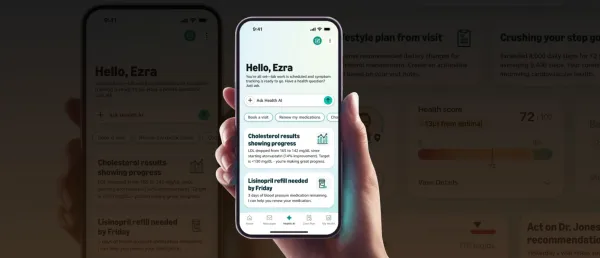University of Oxford Launches Computer Simulations to Guide Future Vaccine Trials

Researchers at Oxford’s Pandemic Sciences Institute will use computer simulations to predict how infectious diseases might spread and the best ways to conduct vaccine trials during outbreaks.
The University of Oxford has unveiled a new project to model how future vaccine trials could be conducted during outbreaks of deadly diseases.
The PREpare using Simulated Trial Optimisation (PRESTO) project, backed by up to $2.4 million in funding from the Coalition for Epidemic Preparedness Innovations (CEPI), aims to strengthen global responses to potential pandemics.
PRESTO is part of CEPI’s $80 million strategic partnership with the University of Oxford, which aims to accelerate the development of vaccines against diseases with pandemic potential.
Researchers at Oxford’s Pandemic Sciences Institute will use computer simulations to predict how infectious diseases might spread and the best ways to conduct vaccine trials during outbreaks.
The focus diseases include nipah, chikungunya, lassa, rift valley fever, ebola, corona viruses, and an as-yet-identified ‘Disease X’. These diseases are prioritized by CEPI and listed on the WHO R&D Blueprint.
How Does PRESTO Project Work?
The PRESTO project will use data from CEPI-funded research and previous outbreaks to create hypothetical scenarios. Further, these scenarios will explore the selected viruses' potential spread, impact, and severity.
The findings will help vaccine developers and public health officials understand which clinical trial designs could most effectively measure vaccines' efficacy or real-world effectiveness.
Highlighting the importance of the project, Dr Richard Hatchett, CEO, CEPI, said, “When a new outbreak strikes, we won’t have time to get all the information we need to tell us how best to conduct pivotal clinical trials that test the efficacy or effectiveness of promising epidemic or pandemic vaccines. However, mathematical modeling can give us a head start by forecasting how a worrisome virus might spread and what we must do to respond.”
Hatchett further added that having PRESTO’s optimal study designs readily available in an outbreak will allow health officials to make quick, informed decisions on the best steps for more efficient vaccine testing and rapid evidence generation, thereby creating a faster outbreak response.
Additionally, the computer simulations will produce analysis sheets ranking different clinical trial options for each disease. These sheets suggest the best trial designs, such as randomized controlled or ring vaccination trials, and guide participant numbers and study duration.
Prof Christophe Fraser, Pandemic Sciences Institute, University of Oxford, said, “With every day of delay potentially costing many lives, and with the recent experience from COVID-19, we now have an opportunity to develop improved vaccine clinical trial designs so we can hit the ground running in a disease outbreak.”
Project Roadmap
The three-year PRESTO project will begin by focusing on the Nipah virus, one of the deadliest known to humans. It will then move to other diseases.
In the event of a new Disease X outbreak, the team will pivot their efforts to the emerging pathogen. The project’s open-source software will allow external researchers to use and update the models with new data.
“Our aim isn't to find the theoretical, abstract best solution but to develop models that allow decision-makers to explore the impact of the inevitable trade-offs they will have to make in different settings,’’ Prof Fraser added.
According to him, all trials aim to test that vaccines are safe and effective. Still, there are many ways of finding people to recruit in a trial, and doing so well is particularly challenging given the fast-moving nature of the early stages of a pandemic.
Stay tuned for more such updates on Digital Health News































